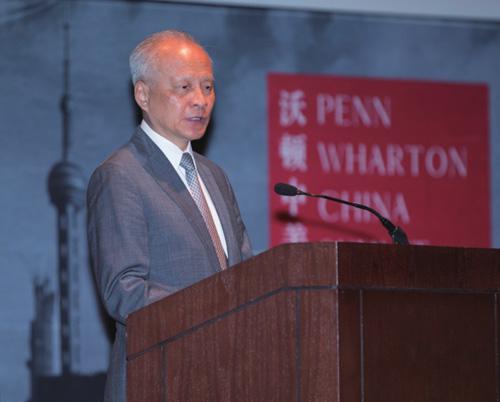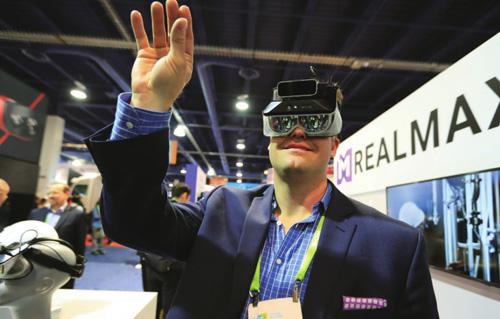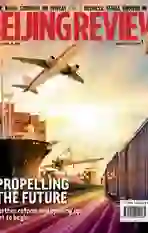At a Crossroads
2018-05-09
In a speech at the Penn Wharton China Summit 2018 in Philadelphia on April 15, Chinese Ambassador to the United States, Cui Tiankai, reaffi rmed Chinas commitment to further opening up. He also urged U.S. politicians and strategists to make the right choice for the worlds most important bilateral relationship. An edited excerpt follows:
On April 10, President Xi Jinping made an important speech at the opening ceremony of the Boao Forum for Asia Annual Conference 2018. After reviewing reform and opening-up practices and the achievements of the past four decades, President Xi pointed out the future direction for China and the world in the midst of major transformation and adjustments. Xis speech sent a clear message to the world that Chinas rapid development in the past four decades is proof of the success of its reform and opening-up policy.
China will continue to follow its own development path. Its trajectory wont be affected by outside forces. Chinas door wont be closed, but will open even wider. The opening-up measures announced by Xi will not only benefi t the country, but the entire world as well.
Forty years ago, China made a historic choice to adopt the reform and opening-up policy. At almost the same time, China and the United States established diplomatic relations. The moves have delivered tangible benefi ts to both peoples.
In the run-up to the 40th anniversary of the establishment of diplomatic relations in 2019, the two countries have reached another critical point. Their choice now will not only set the direction for bilateral ties in the coming decades, but will also decide how their relationship will affect the future of the two countries and the world.
Chinas choice is clear and fi rm. It hopes that both can build a strong, healthy and stable relationship—a new type of majorcountry relationship featuring no conflict, no confrontation, mutual respect and winwin cooperation.
Since both countries are permanent members of the UN Security Council and the worlds top economies, China and the United States need to strengthen cooperation. It is in their mutual interests, but it is also their responsibility as well as the expectation of the international community. Furthermore, the two countries have their own domestic development goals which can also be achieved more effectively through cooperation.
However, some people in the United States think the U.S. engagement policy with China for the past 40 years was a wrong decision. This is an absurd viewpoint. The U.S. decision was made for its own interests, which have been advanced through cooperation with China.
Positive changes to the world have come about through collaboration between China and the United States on major issues of international significance including peace, security, antiterrorism, trade, fi nance, disaster prevention, poverty reduction and climate change. These in turn show it is necessary for the two countries to continue to work together.
Some believe that the United States has suffered a loss in trade with China. This point of view is untenable. The trade volume between China and the United States has grown from a negligible amount before U.S. President Richard Nixon visited China in 1972, to over $580 billion in 2017. Two-way investment has also increased, producing mutually benefi cial results.
U.S. companies have played an active role in the development of China. At the same time, they have greatly benefited from Chinas development. They have received market shares and commercial returns. For example, by February 2018, U.S. aircraft maker Boeing had won 1,690 orders from its Chinese clients, 1,389 of which had been delivered. The number of aircraft delivered to its Chinese clients in 2017 accounted for 26 percent of Boeings global deliveries. In 2017, 60 percent of U.S. soybean exports went to China. Many U.S. products exported to China make up more than half or even two thirds of their total export volume.
The United States large trade defi cit with China is a problem, but its caused by several factors, including U.S. economic structure, low saving rates and hi-tech export restrictions to China. China is not pursuing a trade surplus but hopes instead to create a balance. The United States doesnt always sell what China wants, since it restricts its exports of hi-tech products. To solve the trade imbalance the real reason must be uncovered. A trade war is the wrong solution and does no good for either side. But if anyone insists on fi ghting one, China will defend its interests to the end.
There are also accusations that Chinese workers are stealing jobs from their U.S. counterparts, which is obviously untrue. Chinese workers arent going to the United States to fi nd jobs. U.S. companies allocate their resources and production on a global basis to maximize their profi ts, greatly boosting the U.S. economy. While the U.S. GDP almost doubled from 2001 to 2017, many ordinary people in the United States havent seen improvement in their living standards, which is obviously a problem of U.S. domestic governance. Unwilling to face and unable to solve the problem, some turn to scapegoating China, which only serves the interests of certain groups, but cant protect the interests of U.S. workers.
I hope that U.S. politicians and strategists will not take the wrong direction, but instead make the right choices at the crossroads of history. As long as the two countries prioritize the interests of their people, the right choice is apparent and the decision is not diffi cult to make.
